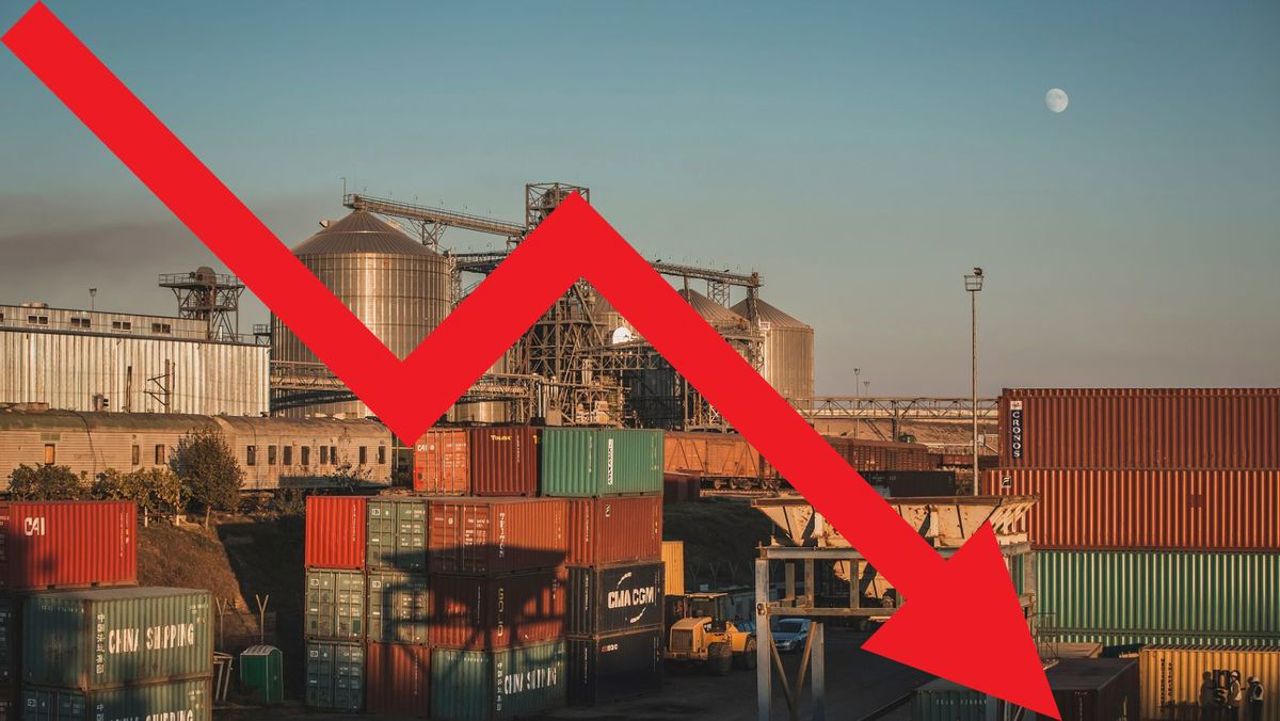Moldova Economy: Exports decline, IT & services rise

Declining agricultural production, reduced demand in European markets, and rising logistical costs have led to a 12 percent drop in export volumes, experts say.
They warn that without investment, the country risks remaining dependent on imports and remittances, even though the IT and services sector offers promising prospects for recovery.
Economic expert Veaceslav Ioniță stated on Radio Moldova's "Zi de zi" (Day by Day) show that this marks the 26th straight month of declining exports and that the negative trend will continue in the short term. According to the analyst, the main causes of this trend are reduced agricultural output, including wheat, which has reached its lowest level in 10 years; the partial loss of the Ukrainian market; and a decline in exports from the processing industry, especially in the sunflower oil and automotive sectors. The economic expert emphasizes that authorities must do more to support economic diplomacy and access to foreign markets.
"There's enormous potential in the Black Sea region – Ukraine, Georgia, Turkey – as well as in North African countries. A positive example: in 2024, we had the weakest fruit harvest in 10 years, yet exports were the highest. Why? We diversified our products – we no longer export just apples and walnuts, but also grapes and berries. And we diversified our markets – if before we only exported to Russia, Belarus, and Kazakhstan, now we export to at least 10 countries. Another important factor was product packaging. Thanks to the USAID Competitive Agriculture Program, we managed to increase the value of exported products. For instance, the average price per kilogram exceeded one dollar. We shouldn't export a lot, but rather intelligently," Ioniță explained.
Sergiu Harea, President of the Chamber of Commerce and Industry, affirms the difficulties faced by exporters. According to him, exports of furniture, textiles, and electronic equipment have been affected by decreased demand, especially in European Union markets. Additionally, logistical costs to CIS countries have tripled, thus limiting access to these markets. Sergiu Harea highlights that the country exports raw materials instead of processing them domestically.
To stimulate exports, the Chamber of Commerce and Industry proposes diversifying markets and products, investing in energy efficiency and advanced technologies, and developing high-value-added industries, such as IT.
"We've talked a lot about goods exports, but we shouldn't forget about services exports. Here, we have enormous potential. Currently, we have over 2,300 resident companies in the IT Park, which exported services wor th approximately $780 million in 2023. This sector has the potential to reach over $1 billion in exports. In parallel, it's important to support the development of the electronics industry and promote the processing of agri-food products," Sergiu Harea stated.
The Republic of Moldova is becoming an attractive destination for investors, particularly due to its strategic position regarding Ukraine's reconstruction, affirms Viorel Garaz, State Secretary at the Ministry of Economic Development and Digitalization. The institution recently launched a state aid scheme that has already attracted 13 applications, with four projects approved, totaling over 1 billion lei in investments to help entrepreneurs improve their production quality.
"We see significant interest from investors in the construction materials sector, who aim to be ready to participate in Ukraine's reconstruction after the war's active phase concludes. They choose to locate their factories close to the conflict zone to quickly deliver necessary products when it becomes possible," Viorel Garaz noted.
The economy of the Republic of Moldova is beginning to show signs of recovery, despite regional challenges and a complicated economic context, says the Ministry of Economic Development and Digitalization. The institution states that service exports have grown by 9.5%, and the IT sector already contributes around 8% to the Gross Domestic Product.
Translation by Iurie Tataru





